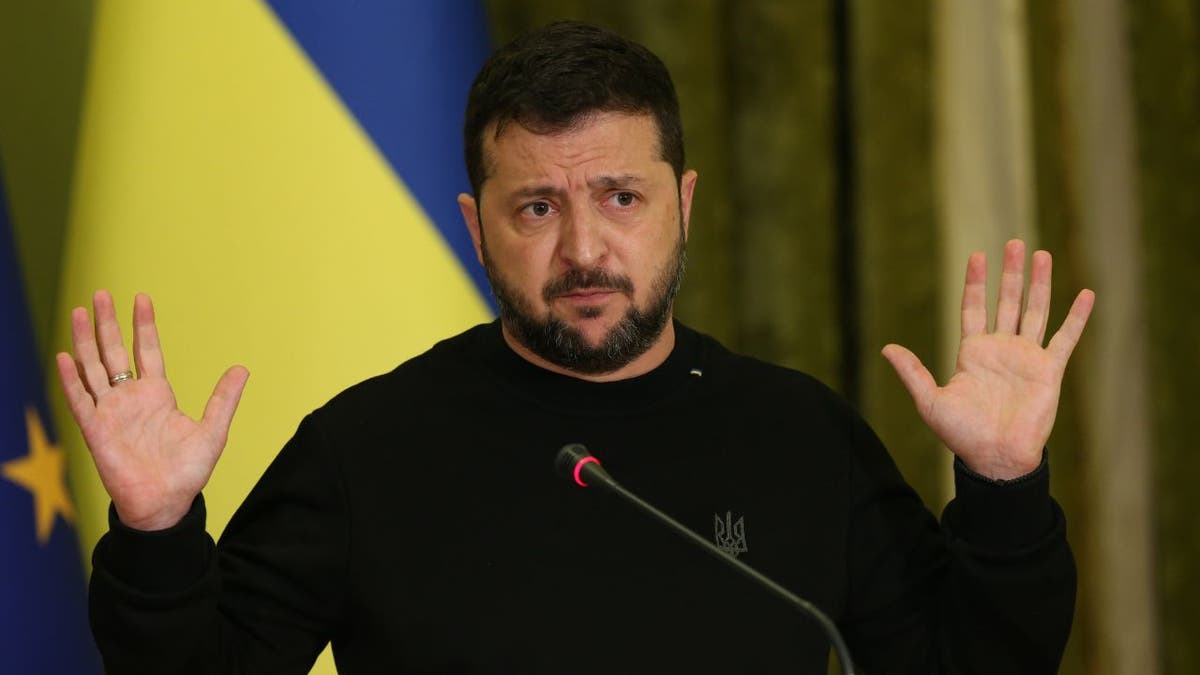FIRST ON FOX: Sen. JD Vance, R-Ohio, is introducing a bill aimed at addressing the U.S. munition supply chain and evaluating defense readiness as concerns grow over continued foreign aid to Ukraine.
As financial support to Ukraine becomes a growing point of contention among lawmakers, Vance introduced the Knudsen Defense Remobilization Act alongside co-sponsors Sens. Marco Rubio, R-Fla., and Eric Schmitt, R-Mo., to look at U.S. defense capabilities.
FORMER TOP BIDEN AIDE CONFIRMS WH OFFICIAL’S ALLEGED HISTORY OF BULLYING, SEXUAL HARASSMENT
“America’s military stockpiles are dangerously low. Joe Biden has spent two years sending more weapons to Ukraine than we’re capable of manufacturing, and it’s putting our national security at risk,” Vance told Fox News Digital in a statement. “We’re woefully unprepared for any type of major conflict. This legislation would recruit industry experts to identify the shortfalls of our military industrial base and outline necessary regulatory reforms to get defense production back on track.”

Sen. JD Vance speaks with members of the media on Feb. 28, 2024, at the Capitol. (AP Photo/Mark Schiefelbein)
The bill would establish a commission for the purpose of “American Defense-Industrial Mobilization,” which would be tasked with providing the president and Congress with recommendations regarding the defense-industrial base. The commission would include 12 bipartisan lawmakers, chosen by Senate and House leadership in both parties and by several committees. Per the measure, those on the commission should have expertise in the fields of industrial policy, manufacturing and defense.
TOP STATE DEPT. OFFICIAL REASSURES KOSOVO OF SHARED RESPONSIBILITY IN SERBIAN RELATIONS DURING VISIT
In the legislation, Vance prefaced that the U.S. is confronted with “a critical lack of domestic industrial capacity necessary to support and maintain its defense, particularly in the event of a major conflict.”
The bill also claims that various shortages in the defense supply chain put the country in a position where it would take several years to fully replenish munitions and necessary supplies.

Sen. JD Vance talks with reporters following the Senate Republican weekly policy lunch at the U.S. Capitol, Feb. 27, 2024. (Reuters/Nathan Howard)
“As the United States faces the existential threat of a rapidly modernizing military by the People’s Republic of China, it’s long overdue that the United States take a hard look at how we can remobilize and revitalize our industrial base,” Schmitt said in a statement to Fox News Digital.
NYPD GROUP SLAMS BIDEN JUDICIAL NOMINEE WITH TIES TO 9/11 HIJACKER SYMPATHIZERS: ‘DESPICABLE’
Vance’s bill is named for automotive executive William S. Knudsen, who was charged in 1940 with taking over U.S. war production as chairman of the Office of Production Management and a member of the National Defense Advisory Commission.
The Ohio Republican noted in the bill that Knudsen’s work allowed the U.S. to mobilize its industrial war production network, referred to as the “Arsenal of Democracy,” which ultimately led to an allied victory in World War II.

Sen. JD Vance speaks during a Senate Commerce, Science and Transportation Committee hearing in Washington, on March 22, 2023. (Reuters/Evelyn Hockstein)
The measure comes as renewed funding for Ukraine’s defense against Russia remains pending in Congress, with a significant and growing Republican faction expressing skepticism about continued aid to the country, which has been at war for more than two years.
SENATE REPUBLICANS INTRODUCE LAKEN RILEY ACT, URGE IMMEDIATE CONSIDERATION OF ‘COMMONSENSE’ BILL
An aid package for $95 billion to Ukraine, Israel and Taiwan was passed in the Senate last month, but Speaker Mike Johnson, R-La., has yet to bring it for a vote in the House. However, various discharge petitions launched by other members could seek to sidestep Republican leadership and force a floor vote on the measure. President Biden is expected to sign the package if it reaches his desk.

Ukraine President Volodymyr Zelenskyy (Viktor Kovalchuk/Global Images Ukraine via Getty Images)
CLICK HERE TO GET THE FOX NEWS APP
Vance’s bill notably mentions Ukraine’s war, providing for the established commission to assess the “lessons learned” from the fight, in particular whether various U.S. “contingency scenarios in Europe, the Middle East, and Asia” are reflective of that knowledge.
The Ohio senator has frequently criticized seemingly unfettered and unaccounted for aid to Ukraine amid its struggle against Russia, sounding the alarm over military preparedness in the U.S.
“Behind the price tag, this conflict has revealed the shocking weakness of the defense industrial base on both sides of the Atlantic,” he said last month. According to Vance, both Europe and the U.S. have displayed “fragmented defense industries” that “make limited quantities of the most advanced weapons on Earth, but struggle to produce heavy weaponry at the speed and scale needed to win a major conflict.”






